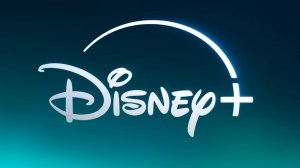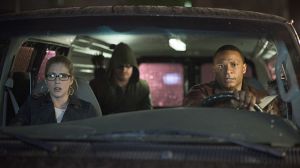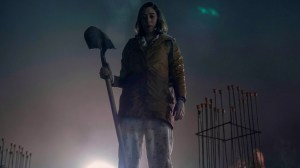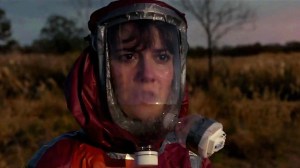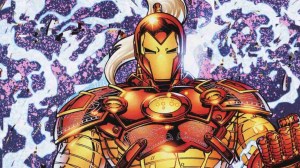Over its many movie and television projects, the Marvel Cinematic Universe has not just brought the wild and wondrous world of comic book heroes to life on a large scale, but the MCU has also used its stories to take on real-world issues as well. In particular, Marvel tackles issues of grief, trauma, and healing as its heroes deal with large-scale existential threats as much as personal issues as well. But few Marvel franchises confront the topic of trauma as well as the Guardians of the Galaxy franchise. Now, with the Guardians about to embark on one final adventure in Guardians of the Galaxy Vol. 3, the MCU is poised to deliver its most important story yet — and it’s one that has the potential to teach fans a lot about healing by showing that one can heal without there being a happily ever after.
Videos by ComicBook.com
As a franchise, Guardians of the Galaxy is an outlier within the MCU in several ways, but its intimate storytelling may be the most obvious. The entire journey centers around Peter Quill/Star Lord (Chris Pratt) and his childhood trauma. It’s literally where the first film begins, with young Peter being taken from Earth as his mother dies, and it’s that moment that sets in motion most subsequent events in the franchise. Over the course of the first two movies — and auxiliary appearances in the larger MCU — we’ve witnessed Peter have to work through that experience as he builds a team that becomes a family, also out of people who have experienced their own loss and trauma in ways that have negatively impacted their lives. By the time we are seeing them after Avengers: Endgame and at the start of Guardians of the Galaxy Vol. 3, the entire team is comprised of people who are, while still imperfect, far different from when we first met them. They’ve dealt with unimaginable loss and difficulty but are still forging forward.
It’s this position that allows Guardians of the Galaxy Vol. 3 to explore the next step in the journey: a resolution that includes a realistic look at what healing is. And the key word there is realistic. One of the major misconceptions about journeys through grief and trauma is that healing is a capstone achievement. Once you are “healed”, your suffering ends and you are whole. In reality, that is not the case. Healing is a continuous process and is less about the destination and more about the skills one picks up along the way, and then in turn those skills are what get you through the next challenge.
For the MCU, Guardians of the Galaxy Vol. 3 is a perfect place to tell that story. As we go into the movie, we know that Peter — and on a different level, the entire team — is dealing with the loss of the Gamora (Zoe Saldana) they know while also reconciling that a version of Gamora still exists. We also know, thanks to previews, that the film is going to give us insight into Rocket’s (Bradley Cooper) origin story and may even see the death of major characters. Throwing those kinds of challenges and traumas at the team is going to test each of those characters and how they are with dealing with everything they’ve endured up to this point. It’s in that aspect of existence and endurance that viewers will see what healing from trauma really looks like.
And that may mean we won’t get a happy ending for everyone — or what will feel like a happy ending for audiences. And that’s the thing about healing from trauma. Healing more often than not comes in accepting a situation and finding ways to coexist with its impact without letting it destroy you. It can also mean learning to let go. It is very possible that this film will not see Peter and Gamora come back together and, in turn, may see Peter let go of that relationship and truly grieve the Gamora he lost. For Peter (and fans), while that would be a sad outcome, it would also be evidence of his healing as grieving loss has been something that has been a long part of his journey. Some have speculated that the film will see the death of Drax (Dave Bautista), but that, too, can be healing. For Drax, it would mean the completion of his journey, allowing him to reunite with his loved ones, but while also having to say goodbye to this new, found family. Neither development would be “happy,” but for those characters, the safe acceptance of these circumstances is just that. It’s the culmination of their growth and their response to the new status quo would reflect it.
Allowing these characters to experience these challenging outcomes and still find peace sends a message to viewers that their own challenges and journeys may still be difficult, but there is still peace to be had. It’s an important message and one that the MCU hasn’t really touched on often. For many of our major characters, we’ve seen conclusive ends to their journeys — Iron Man died, Captain America went back into the past, Black Widow sacrificed herself, etc. When we leave Guardians of the Galaxy Vol. 3, their trilogy may be over, but the characters’ stories won’t be. They can appear in future films in the MCU. They will have to carry on and we will know that they can do so having dealt with their losses and pain and come out the other side.
And if our heroes, scrappy as they are, can do it? We can, too.
To celebrate the release of Guardians of the Galaxy Vol. 3, ComicBook.com is teaching you everything you need to know about the newest movie in the Marvel Cinematic Universe! Check out ComicBook CRAM every day before the release of Vol. 3 and click here for even more content to find out everything you need to know about the new movie!


